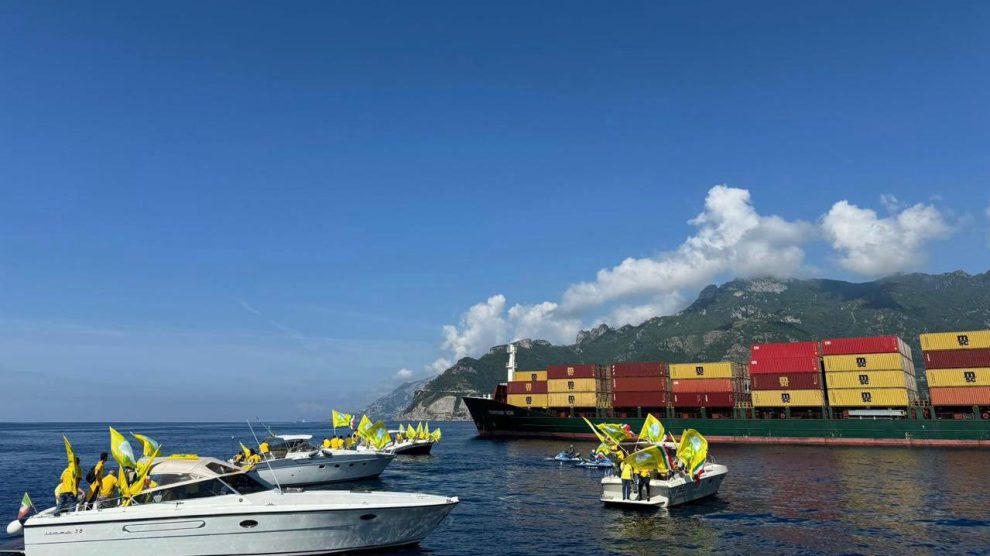Forty containers of Chinese tomato paste arrived in Salerno, Italy, after a 10,000-kilometre journey from Xinjiang. The Coldiretti farmers’ association protests against “unfair imports” and Chinese worker exploitation, noting that 90% of China’s tomato paste comes from Xinjiang, where Uighur forced labour is reported
The arrival. Forty containers of Chinese tomato paste, which left Xinjiang, People’s Republic of China (PRC) a month ago on the China-Europe Railway Express train, arrived in Salerno, Italy, by ship on Wednesday.
- The cargo travelled 10,000 kilometres by both rail and sea and made a stopover.
- It was received in Salerno by farmers from the Coldiretti association, who approached the ships on dinghies while shouting, “No fakes in Italy!.”
- Coldiretti stood “against unfair imports, which are made by exploiting Chinese workers or not adhering to European standards,” said Ettore Prandini, president of Coldiretti, at a Senate hearing.
The controversy. Ninety per cent of the tomato paste exported from China comes from fields in the Xinjiang region. According to various human rights associations, tomatoes are grown with forced labour from Uyghurs.
- Italy imported 85 million kilograms of Chinese processed tomatoes last year, as reported by Coldiretti.
- Several governments, including the United States, claim that a genocide against Uyghurs is taking place in Xinjiang by the authorities of the PRC.
- Last month, two NGOs, the Uyghur Human Rights Project (UHRP) and the Uyghur American Association and Safeguard Defenders, jointly wrote a letter to the Italian government expressing concern about the cargo.




